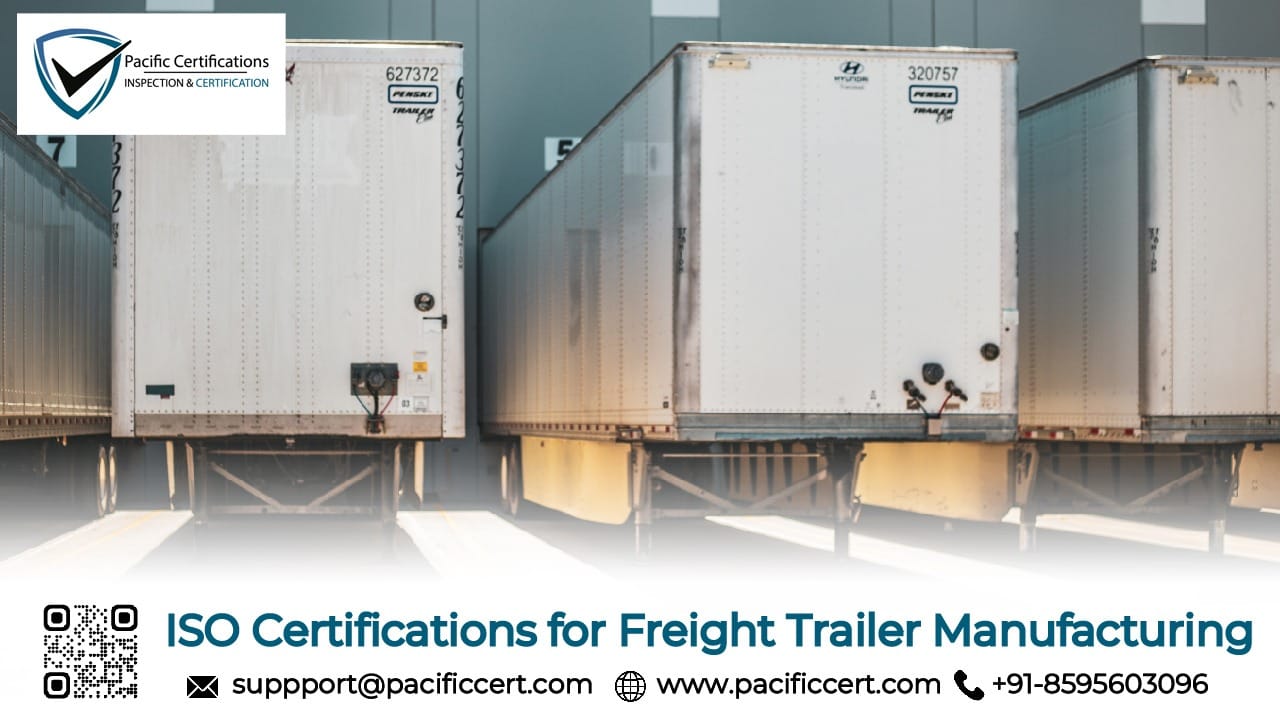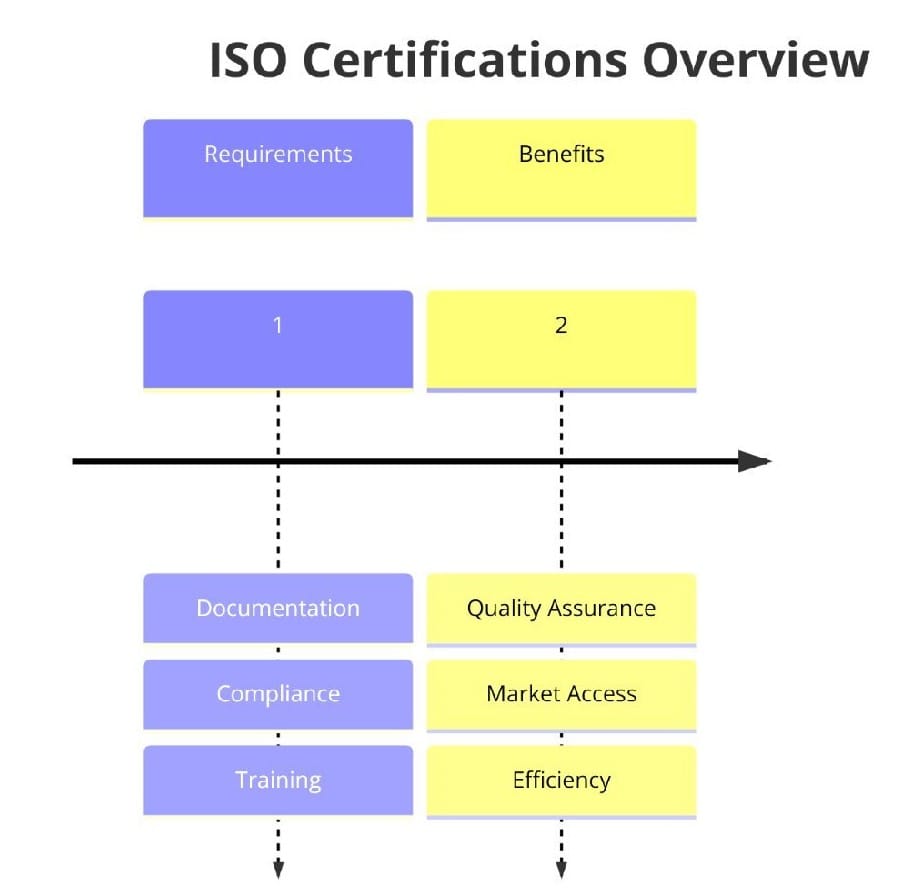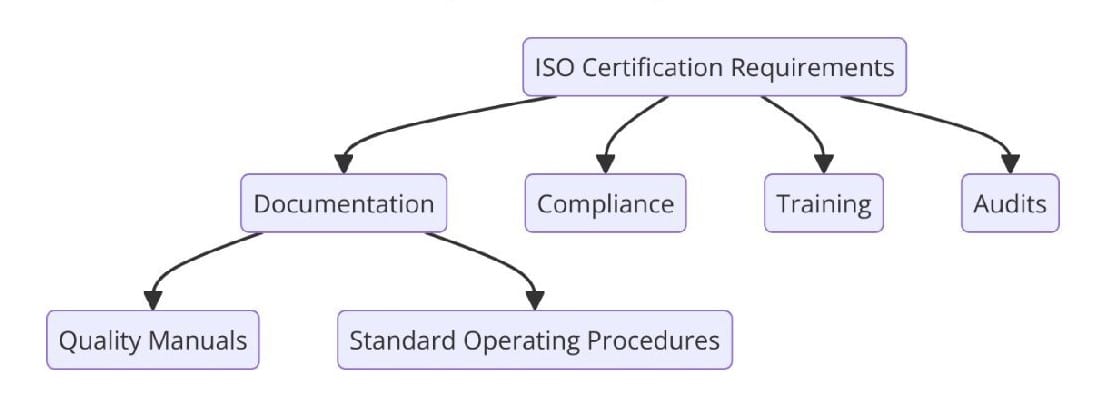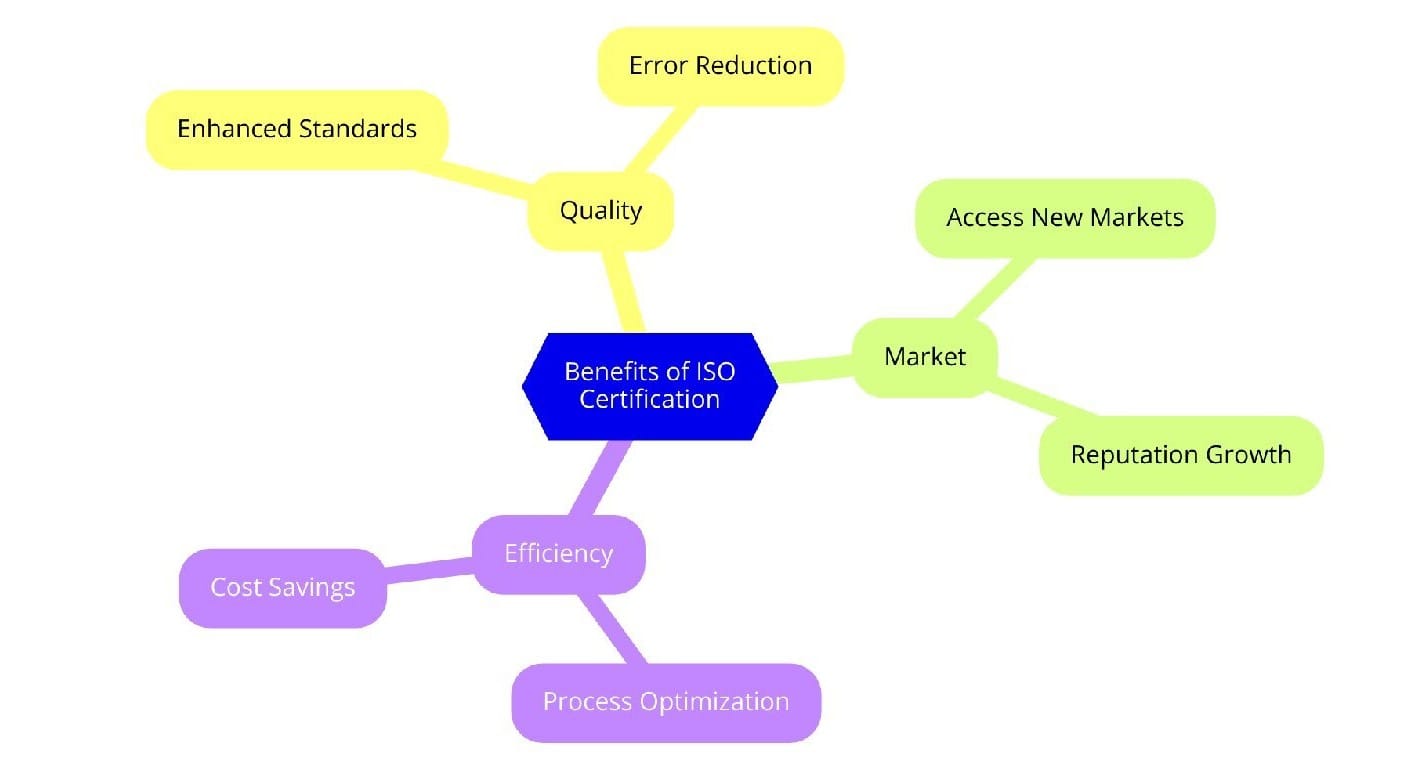ISO Certifications for Freight Trailer Manufacturing Businesses, Requirements and Benefits

ISO Certifications for Freight Trailer Manufacturing: Ensuring Excellence and Compliance
Freight trailer manufacturing is a critical industry that bridges the gap between transportation logistics and supply chain efficiency. As global demands grow, so does the necessity for quality and operational excellence in trailer manufacturing.
ISO certifications play a vital role in ensuring manufacturers adhere to internationally recognized standards, fostering trust among clients and stakeholders alike.
The International Organization for Standardization (ISO) is a globally recognized body that sets standards to ensure consistency, safety, and quality across various industries. Freight trailer manufacturing, as a pivotal sector in logistics, significantly benefits from ISO standards.
These certifications ensure that manufacturers produce trailers that meet strict safety and performance benchmarks, align with regulatory requirements, and enhance customer satisfaction.

For freight trailer manufacturers, obtaining ISO certification isn’t merely a badge of honor—it’s a commitment to operational excellence, sustainability, and competitive differentiation. Whether the focus is on quality management or environmental responsibility, ISO standards provide a structured framework to improve processes and outcomes.
If you are ready to enhance your Freight Trailer Manufacturing processes with ISO certification, reach out to us at [email protected] or call +91-8595603096 for expert assistance.
Applicable ISO Standards for Freight Trailer Manufacturing
Several ISO standards are directly relevant to freight trailer manufacturing. These cover quality management, environmental performance, safety, and other key operational areas:
ISO 9001: Quality Management System (QMS)
ISO 9001 is the most widely recognized standard for quality management. It ensures that manufacturers maintain consistent quality in their design, production, and delivery processes. For freight trailer manufacturing, this includes adhering to customer requirements, maintaining production efficiency, and fostering continual improvement.
ISO 14001: Environmental Management System (EMS)
As sustainability becomes a critical concern in manufacturing, ISO 14001 helps companies manage their environmental responsibilities. This includes efficient resource utilization, waste reduction, and minimizing the environmental impact of operations.
ISO 45001: Occupational Health and Safety Management
Worker safety is paramount in trailer manufacturing due to the risks associated with heavy machinery and production environments. ISO 45001 focuses on creating a safe workplace, reducing hazards, and promoting employee well-being.
ISO 3834: Quality Requirements for Welding
Freight trailers rely on welding for structural integrity. ISO 3834 sets quality benchmarks for welding processes, ensuring robust and durable manufacturing.
ISO 10957: Safety Requirements for Trailers
This standard specifically addresses safety parameters for trailers, including braking systems, weight distribution, and operational safety checks.
ISO 50001: Energy Management Systems
Energy efficiency is critical in manufacturing. ISO 50001 enables manufacturers to optimize energy use, reduce costs, and achieve sustainability goals.
Click here to find out more applicable standards to your industry
At Pacific Certifications, we specialize in providing auditing and certification services tailored to the freight trailer manufacturing industry. Our role is to assess your compliance with ISO standards, ensuring that your operations meet the stringent requirements for certification.
By partnering with us, you gain:
- Access to experienced auditors with expertise in the manufacturing sector.
- A seamless certification process designed to minimize disruption to your operations.
- A globally recognized certification that enhances your brand reputation and customer trust.
To embark on your ISO certification journey, contact us at [email protected].
Elevate your Freight Trailer Manufacturing standards with ISO certification. Connect with us at [email protected] or give us a call at +91-8595603096 for personalized guidance.
Requirements of ISO Certifications for Freight Trailer Manufacturing
Freight trailer manufacturers must meet specific requirements outlined in applicable ISO standards to achieve certification. Below, the key requirements for each standard are listed individually to provide clarity on their focus areas and implementation steps.

ISO 9001: Quality Management System (QMS)
- Quality Policy: Define a quality policy aligned with organizational goals and customer expectations.
- Customer Focus: Identify and address customer requirements to enhance satisfaction.
- Process Approach: Adopt a systematic approach to manage and improve processes.
- Performance Monitoring: Establish measurable quality objectives and regularly monitor performance.
- Risk-Based Thinking: Identify and mitigate risks that could impact product quality.
- Internal Audits: Conduct periodic audits to ensure compliance and identify areas for improvement.
- Continual Improvement: Implement strategies for ongoing process optimization and defect prevention.
ISO 14001: Environmental Management System (EMS)
- Environmental Policy: Develop a policy to address environmental impacts and compliance obligations.
- Environmental Aspects and Impacts: Identify significant environmental aspects and mitigate their impacts.
- Compliance Obligations: Adhere to environmental laws and regulations relevant to manufacturing.
- Resource Efficiency: Optimize the use of raw materials, energy, and other resources.
- Waste Management: Implement procedures to minimize waste generation and promote recycling.
- Emergency Preparedness: Plan and prepare for environmental emergencies, such as spills or leaks.
- Monitoring and Evaluation: Track environmental performance and strive for continual improvement.
ISO 45001: Occupational Health and Safety Management
- Hazard Identification: Identify and assess workplace hazards, especially in high-risk operations like welding.
- Worker Participation: Engage employees in safety planning and decision-making.
- Risk Management: Implement controls to eliminate or minimize occupational health and safety risks.
- Legal Compliance: Meet regulatory requirements for workplace safety.
- Safety Training: Provide training to employees on equipment handling and emergency response.
- Incident Reporting and Investigation: Establish a system for reporting and investigating workplace incidents.
- Continual Improvement: Regularly review safety performance and update measures as necessary.
ISO 3834: Quality Requirements for Welding
- Welding Personnel Qualifications: Ensure all welders have appropriate certifications and training.
- Welding Procedures: Develop and validate procedures for all welding activities.
- Material Identification: Track materials used in welding to maintain traceability.
- Inspection and Testing: Perform inspections and non-destructive testing (NDT) to verify weld quality.
- Equipment Maintenance: Ensure welding equipment is regularly maintained and calibrated.
- Documentation: Maintain detailed records of welding activities and quality checks.
ISO 10957: Safety Requirements for Trailers
- Structural Integrity: Design and test trailers to ensure they meet strength and durability standards.
- Braking Systems: Equip trailers with compliant and reliable braking mechanisms.
- Weight Distribution: Ensure proper load distribution for stability and safety.
- Lighting and Signaling: Install lighting and signaling devices per safety regulations.
- Safety Testing: Conduct rigorous testing to validate safety features under various conditions.
- Compliance with Local Laws: Align trailer safety features with applicable regional or national safety laws.
ISO 50001: Energy Management Systems
- Energy Policy: Define an energy policy focusing on efficiency and sustainability.
- Energy Review: Assess energy consumption and identify significant energy uses.
- Energy Performance Indicators (EnPIs): Establish metrics to measure energy performance.
- Energy Objectives and Targets: Set achievable goals for reducing energy consumption.
- Operational Controls: Implement measures to improve energy efficiency during production.
- Monitoring and Measurement: Track energy usage and progress toward goals.
- Awareness and Training: Train employees on energy-saving practices and technologies.
By meeting these detailed requirements for each ISO standard, freight trailer manufacturers can not only achieve certification but also enhance their operational efficiency, safety, and environmental stewardship. For further assistance with ISO certification, contact Pacific Certifications at [email protected].
Benefits of ISO Certifications for Freight Trailer Manufacturing
Obtaining ISO certification offers numerous advantages that extend beyond compliance:

Customer Confidence: Clients prefer working with ISO-certified manufacturers, knowing that the products meet high-quality and safety benchmarks.
Market Access: ISO certification serves as a passport to international markets by demonstrating adherence to globally accepted standards.
Operational Efficiency: Implementing ISO standards leads to streamlined processes, reduced waste, and optimized resource utilization, driving overall efficiency.
Risk Mitigation: Safety and quality standards, such as ISO 45001 and ISO 9001, help manufacturers identify and mitigate risks, ensuring the safety of workers and the reliability of trailers.
Ensure compliance and excellence in Freight Trailer Manufacturing by contacting us at [email protected] or speaking with our experts at +91-8595603096 for your ISO.
As of this year, the freight trailer manufacturing industry is undergoing significant transformation. The integration of smart technologies, such as IoT sensors and telematics, is reshaping trailer design and performance. Additionally, environmental regulations are prompting manufacturers to adopt sustainable practices, with ISO 14001 playing a pivotal role in compliance.
Conclusion
Research indicates a growing demand for lightweight trailers, driven by fuel efficiency and payload optimization. ISO standards, particularly ISO 9001 and ISO 3834, are integral to meeting these evolving demands.
If you’re a freight trailer manufacturer looking to enhance your operations and gain a competitive edge, ISO certification is the key to unlocking new opportunities. At Pacific Certifications, we’re here to guide you through the certification process, ensuring your compliance with international standards.
Pacific Certifications is accredited by ABIS, in case you need support with ISO certification for your Freight Trailer Manufacturing business, please contact us at [email protected] or +91-8595603096.
Ready to get ISO certified?
Contact Pacific Certifications to begin your certification journey today!
Suggested Certifications –
Read more: Pacific Blogs

